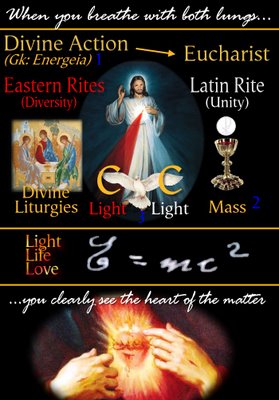Life or Death, Blessing or Curse...It's Our Decision
I found the following account that should not go unnoticed.
http://www.u-blog.net/kelepokepique/cat/16
Virginie Luc
Hiroshima no longer exists. Not even in memory. All that remains is the instant of its destruction.
In the banality of the rebuilt city, the time is irradiated. Sole vestige of the past: the Palace of Industry, a derisory structure, a twisted frame left standing after the explosion and now conserved for posterity. Models of the building can be found in souvenir shops, commercial offerings to the coach loads of Japanese tourists who flock to Peace Square.
"You have seen nothing of Hiroshima," said the Japanese man to the French woman in Marguerite Duras' Hiroshima, My Destiny. Neither have we. Hiroshima no longer exists. It is both lost and immortal, relegated to oblivion and saved by oblivion, like the love of the two nameless heroes of the film.
What abides are the photographs and the strips of flesh conserved in bottles of formaldehyde in the Museum of Peace, deformed day-to-day objects and materials warped by a volcanic heat. On the walls, images of bodies in shreds, river-borne cadavers, the flattened city, black rain, shadows photographed by the effects of the conflagration, the shadow of a human figure, of a leaf, imprinted on the ground by the atomic flash.
Provisional survivors
Nearly seventy of them came. The hibakusha, A-bomb survivors. The last witnesses. Nearly 85,000 are still alive, most of them living modestly, sometimes precariously. Contaminated, they were rejected from society or decided to lead isolated lives. One after the other, with difficulty, standing before us, they came to the meeting to bear witness. On our request, they brought a photo of themselves from the time before, or one of a dear friend or relative who died in the explosion. Many of them have never been able to speak of the event. They tried to reveal their secret, to say the unsayable, to recount a life scarred by the white death and the black rain.
A flood of tears, a dam-burst of emotion. Images picked from the skein of memory, objects torn from oblivion, portraits of families now long gone, wounds revealed and imprinted on their bodies. Even Tomoko, interpreting their words, sometimes broke down. Because it is impossible to give form to the terrifying screams of the victims, the dust and ashes whipped up by burnt bodies, writhing in agony, the spasming flesh where fingers had once been, the desperate rush to the river. Words cannot recreate the nauseating smell emanating not from the cadavers but from what remained of them.
The survivors suffer an invisible contamination. A lingering death, which installs itself, transmits and propagates itself. Leukemia and cancer eat away at radiation-wrecked bodies. A slow death, at once physical and psychological. Having received a suspended sentence, the survivors of the disaster carry within themselves a kind of moral stain. Some feel an intense sentiment of anxiety and guilt. Together, they await a fraternal and legendary death.
Hiroshima, beyond reason
The Hiroshima bomb put an end to the War and to the idea of war. Concretely, by beating Hitler in the race to build an atomic bomb, the United States called a halt to both WWII and the forward march of Nazism. But, beyond this, it was the logic of war itself, the inevitable victory of the strongest that was called into question. For the first time, with this new, blind weapon of destruction, there was no contest. The victims were ontologically denied before they were killed. In that vertiginous temporal compression, the enemy was dehumanised, not even given the time, when the bomb struck with maximum intensity, to realise what was happening.
"People haven't grasped the amplitude of the revolution represented by the atomic bomb, says the philosopher and genetics expert," Albert Jacquard. "It is worthy of the Galilean revolution. It took four hundred years for the idea that the Earth is round to be accepted. And we still talk about the sun rising, as if it were the sun that rose! Today, the world's nuclear arsenal paves the way for collective human suicide. Several thousand megatons are still in commission. By using only 100 megatons just 1% of our stock of nuclear weapons we could wipe out humanity entirely." Simulations have been carried out. We know that the sky would become so opaque (soot, dust, smoke) that the temperature would gradually drop to minus 30C. The difference in temperature between the land and the oceans would modify the pattern of the winds and cause brutal storms. A two-metre thick sheet of ice would cover rivers and lakes. But, above all, the absence of the sunís rays would make photosynthesis impossible, destroying the basis of the world's ecosystem. The ozone layer would be devastated; X-rays and ultraviolet radiation would rain down unabated. The aggressor's victory would by a pyrrhic one: within a fortnight, humanity would cease to exist. The futility of nuclear dissuasion is total: the country that launched the attack would be certain of its own destruction even if the enemy did not respond. According to Albert Jacquard: "The very excess of the threat has become a factor of peace, some say the balance of terror. But for these weapons to play this intimidatory role, there needs to be a possibility, however small, that they could be used. This is tantamount to admitting the possibility of collective human suicide."
Continued talk of nuclear war is symptomatic of our inability to face up to reality, a sign of our lack of understanding of what is at stake. War no longer has winners and losers. Now, the fate of every individual is linked to that of everyone else. "My freedom no longer begins where another person's ends," says the philosopher. "It begins where the other person's begin."
A pact with the Devil
"What have we done? We have made a pact with the Devil!" said Robert Oppenheimer, the creator of the Atomic Bomb, on the evening of August 6, 1945.
Hiroshima represents a point of historic rupture. For the first time, technological progress could be equated with a return to barbarism. It is the end of the great illusion of the inherent rationalism of modernity and of manís unshakeable faith in science. The meaning of what it is to be human has been changed forever. "All the utility of science is channelled towards death," says Michel Serres.
For Albert Jacquard, "every one of humanity's certainties has been overturned. None of the preceding turning points of human history neither the discovery of fire, nor the invention of writing, nor the sighting of a new continent were decisive. This time, men have procured for themselves a kind of power that can overwhelm the planet itself, putting everything on it in danger."
The nuclear threat, be it from terrorists or human error, is a reality. It is so close that we are captivated by it. "People are fascinated by excess," says filmmaker Alain Resnais, director of cult movie, Hiroshima, My Destiny "It touches on something that renders Man eternal, without the aid of a god. It is as dangerous as it is irresistibly attractive." One of the hibakusha, who was only two kilometres from the epicentre of the explosion, told us, "it was beautiful." In other words, it was inconceivable, beyond imagining. And yet, it was a product of humanity. "Stupor at the idea that we dared. Stupor at the idea that we succeeded," says Marguerite Duras' heroine.
E = mc2 It's marvellous!
No question, however, of returning to the Stone Age. "When a new power is acquired, it is acquired definitively, irreversibly," says Albert Jacquart.
"You can't blame Einstein for discovering the secret of energy. The technical application of his formula was entirely beyond his control." On the evening of the Hiroshima explosion, Einstein said, "There are things better left undone." In other words: there are things which men can do because of their intelligence, but there are other things that are forbidden because of their humanity.
"E = mc2 It's marvellous!" continues Albert Jacquard. "It's all the beauty of the understanding of the world. The power of humanity lies in its ability to reveal the secrets of nature, to uncover them one by one. It's a human victory, a victory for intelligence. The danger lies in the use to which these revelations are put. There is a considerable gap between science that leads to comprehension and technique, which leads to action. I am naive enough to believe that understanding is always a good thing." It is this passage from understanding to action that men and women must constantly monitor. We wanted to control the world that surrounds us: our success has been such that we are now subject to our own powers.
Now that almost anything is possible, we must reject certain powers; we are obliged to choose, and thereby to define what is good and what is evil. "For the first time in history," says Albert Jacquard, "it is up to man to define his own limits. We are confronted by a new task: to define morality. We will be forced to implement a democracy of ethics. Getting rid of nuclear weapons is necessary now. The decision does depend on us. In the past, we used turn to God. But it's too late now. Putting our fate in God's hands would be a form of abdication of responsibility, a betrayal of the dignity of mankind."
For sixty years, every morning, the bells of the city ring out at 8.15 a.m. precisely. Instinctively, people look up to the sky.
Virginie.luc@noos.fr
JESUS CHRIST IS LORD!
Imitate Mary
Become like Jesus
Live for the Triune God
Seek the Light of Our Lord Jesus Christ!
See you on the High Ground!






























No comments:
Post a Comment